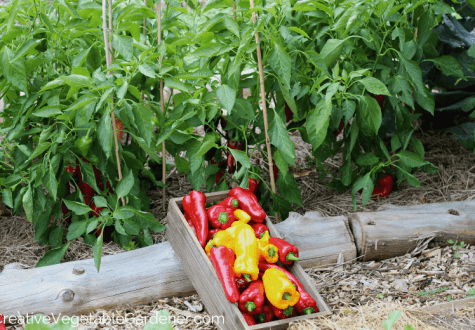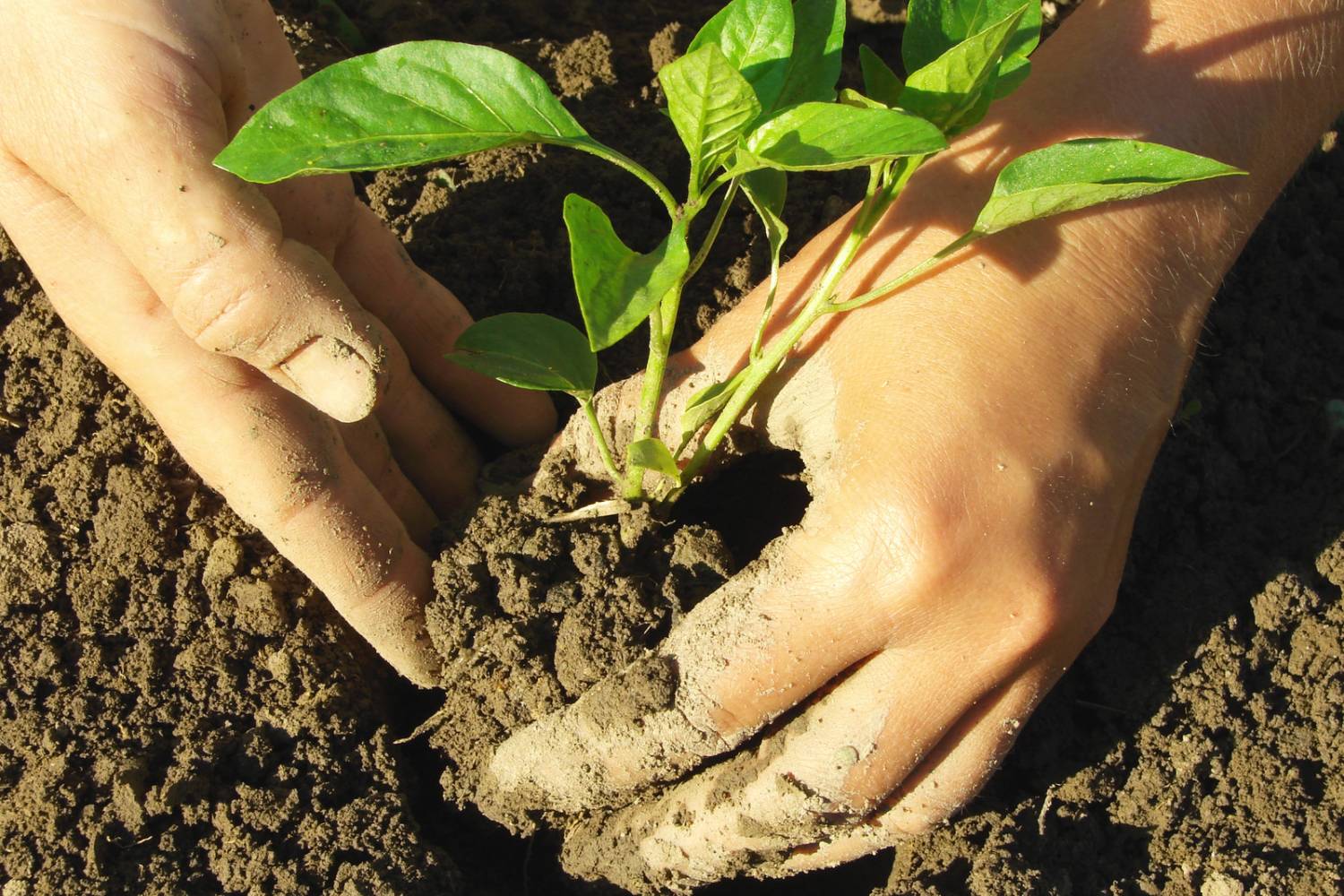Best Fertilizers for Peppers: A Comprehensive Overview to Increase Your Harvest
The Ultimate Guide to Fertilizing Peppers: Enhancing Development and Taste Normally
As pepper enthusiasts look for to grow durable plants generating delicious fruits, the role of fertilization ends up being extremely important in attaining these objectives. By checking out the advantages of all-natural fertilizers, unlocking the tricks behind pepper plant nutrient needs, and delving right into the world of natural fertilizer alternatives, a world of opportunities arises for improving the vigor and taste profile of these precious plants.
Benefits of Natural Fertilizers
All-natural fertilizers supply a series of advantages that contribute to the total health and wellness and performance of pepper plants. Unlike artificial plant foods, natural alternatives give essential nutrients in a type that is conveniently absorbed by the plants, advertising robust growth and advancement. One of the key benefits of all-natural fertilizers is their capability to enhance dirt framework and fertility in time. By enhancing the soil with raw material, such as compost or manure, natural fertilizers enhance its water retention capacity and nutrient-holding capabilities, producing an extra hospitable setting for pepper plants to thrive in.
Furthermore, natural fertilizers support a energetic and varied soil microbiome, cultivating beneficial microbial task that assists in nutrient recycling and uptake by the plants. This microbial task can help suppress damaging microorganisms and conditions, lowering the demand for chemical treatments. Furthermore, all-natural plant foods advertise long-term soil health by maintaining a well balanced ecological community underground, which consequently supports the overall wellness and strength of pepper plants over ground.
Understanding Pepper Plant Nutrient Needs
Having developed the benefits of natural plant foods in improving dirt health and advertising microbial activity, the emphasis now moves to understanding the specific nutrient needs essential for optimal development and flavor in pepper plants.

Understanding the details nutrient needs of pepper plants is important for attaining abundant harvests with exceptional flavor. By offering the ideal equilibrium of nutrients through organic plant foods or dirt changes, farmers can guarantee healthy, vigorous plants that produce savory peppers throughout the growing period.
Organic Fertilizer Options for Peppers
In improving the growth and taste of pepper plants, choosing the suitable natural fertilizers is a vital consideration. Organic fertilizers use a lasting and natural method to nurture pepper plants without introducing unsafe chemicals to the dirt and setting. One popular option is compost, which improves the dirt with crucial nutrients and enhances its framework, promoting healthy and balanced root growth and general plant growth. In addition, compost aids maintain moisture in the dirt, decreasing water anxiety on pepper plants during hot climate.
An additional effective natural fertilizer for peppers is aged manure. Rich in potassium, nitrogen, and phosphorus, aged manure provides a well balanced nutrient mix that supports strenuous development and bountiful fruit production (best fertilizers for peppers). It is necessary to use well-aged manure to avoid burning the plants with excess ammonia
Fish emulsion is a fast-acting organic fertilizer that provides pepper plants with a fast increase of nutrients. Stemmed from fish waste, this plant food is high in nitrogen, making it particularly beneficial throughout the early stages of pepper plant growth. Fish solution is easy to use and is readily soaked up by the plants, advertising healthy and balanced foliage and solid root advancement.
When picking an organic plant food for peppers, consider the specific nutrient demands of your plants and go with choices that line up with your gardening methods and values.
Best Practices for Feeding Pepper Plants
Thinking about the significance of picking proper natural plant foods for pepper plants, executing ideal techniques for fertilizing is essential to guarantee ideal growth and flavor development. One of the key ideal techniques for fertilizing pepper plants is to perform a dirt examination before using any kind of fertilizers. This examination will assist establish the certain nutrient requirements of the soil and overview you in selecting the best type and quantity of fertilizer. It is also important to fertilize pepper plants at the best time, usually before growing and throughout essential growth phases such as blooming and fruit growth.
Additionally, including organic issue into the soil with compost or mulching can aid improve soil framework, water retention, and nutrient schedule, advertising healthier pepper plants look these up with improved flavor accounts. By adhering to these ideal practices, you can efficiently nurture your pepper plants and achieve plentiful harvests with premium taste and quality.
Troubleshooting Common Fertilizing Issues

pH imbalance is one more issue that can affect nutrient uptake in pepper plants. Establishing a normal fertilization timetable and following advised application rates can aid avoid this issue and ensure healthy pepper plants throughout the growing season.
Verdict
To conclude, making use of natural fertilizers can substantially boost the development and flavor of pepper plants. By comprehending the nutrient demands of pepper plants and selecting natural plant food options, garden enthusiasts can successfully advertise energetic and healthy growth. Adhering to ideal techniques for fertilizing pepper plants and repairing common fertilizing problems can help make certain successful farming of peppers. In general, appropriate fertilization strategies are essential for making best use of the yield and high quality of pepper plants.
By discovering the advantages of natural plant foods, unlocking the secrets behind pepper plant nutrient requires, and diving into the realm of organic plant food alternatives, a world of opportunities emerges for enhancing the vitality and taste account of these precious plants.Fish emulsion is a fast-acting organic plant food that supplies pepper plants with a quick increase of nutrients. It is also essential to fertilize pepper plants at the appropriate time, normally prior to growing and during crucial growth stages such as blooming and fruit development.
By comprehending the nutrient requirements of pepper plants and choosing natural plant food choices, gardeners check this can successfully promote strenuous and healthy and balanced development. Complying with finest techniques for feeding pepper plants and troubleshooting common fertilizing problems can assist ensure successful cultivation of peppers.